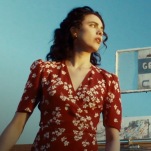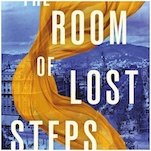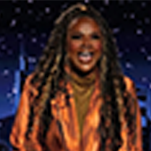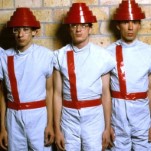Atlanta is One of the Smartest and Most Daring Shows on TV
(Episode 1.07)
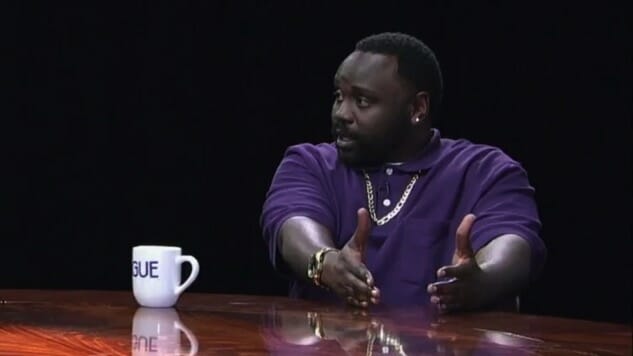
At first glance, “B.A.N.” is a radical departure from the rest of Atlanta’s first season. It’s formally unique, taking place entirely in the context of the broadcast of a fictional talk show, Montague, complete with commercials that range from 2 am infomercials, to Dodge Charger ads that are indistinguishable from real commercials—until they become satire. But it can also be placed in a trilogy with “The Streisand Effect” and “Nobody Beats the Biebs,” as episodes that examine the way outside forces create encoded narratives for people like Paper Boi.
I’ve previously written about how I have mixed feelings about this funhouse mirror portrayal of the media, and I’m still a bit uneasy with the unspoken dismissal of identity politics in this half-hour, but this is an innovative, hilarious piece of television that feels thrillingly specific. Here are five times that “B.A.N.” proved Atlanta is one of the smartest and most daring shows on television.
1. “You don’t think Caitlyn Jenner is important”
After a mock car commercial that gives a good indication of the tone—irreverent, fiery, exaggerated—the episode proper begins with an annoyed and uncomfortable Alfred sitting at a grand wooden table with the stuffy host Franklin Montague (Alano Miller) and Dr. Debra Holt, an advocate for trans issues. He’s on Montague, a talk show that discusses weighty cultural and political issues that’s broadcast on the fictional Black America Network.
Alfred’s on trial in the court of public opinion for a Twitter rant, namely a line about Caitlyn Jenner. As Montague repeats with a holier than thou earnestness, Alfred tweeted out, “Ya’ll the N-words who said I was weird for not wanting to f-word Caitlyn Jenner.”
Alfred’s not interested in being there in general, and Montague and Holt are just as disinterested in actually placing his words into context, or listening to his emphatic response. Instead, they’re trying to make him the origin of generalizations about black masculinity or a symptomatic transphobia.
It’s only more tiring for Alfred when it’s coming from a white woman who’s making assumptions about the lack of a father figure, or homoerotic themes in his lyrics. Alfred can’t just say that Caitlyn Jenner isn’t important to his life or that he doesn’t especially care about her, without becoming an opponent. It’s an echo to public conversations about whether Caitlyn was a hero or not for coming out.
But this episode is less about specifically exploring transphobia or tolerance than about discussing the ways that the wording in conversations can cloak true meaning and create a more divisive atmosphere.
![]()
2. “The Price Is On the Can, Though”
All of the in-episode commercials are about the ways that advertisers market to black demographics and it’s a major achievement that they feel like bits from Chappelle’s Show and are also straight-faced enough to feel like totally real ads. They’re separated into two chunks, so I’ll talk about each one. My personal favorite of the first set has to be the Mickey’s commercial where the 40 oz is poured like champagne as a man at a masquerade party bobs and weaves through a crowded party to toast with a beautiful woman. It’s a perfect parody of the bravado of modern liquor commercials, where celebrities like Daniel Craig and P. Diddy sashay through lavish ballrooms and high-rise suites.
These commercials serve another purpose. They completely immerse the viewer in this constructed world, adding an extra layer to the experience of watching this faux show within a show.
-

-

-

-

-

-

-

-

-

-

-

-

-

-

-

-

-

-

-

-

-

-

-

-

-

-

-

-

-

-

-

-

-

-

-

-

-

-

-

-












